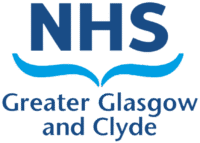Post exposure prophylaxis (PEP) is a short emergency course of medication that can reduce the risk of developing HIV infection, but acting quickly is crucial. PEP is not a substitute for regular HIV prevention methods like Pre-Exposure Prophylaxis (PrEP) and condom use. It can be taken by someone who does not have HIV but who has or may have been very recently exposed to HIV.
On this page you will find information on:
Who this service is for
This service is for anyone living in Greater Glasgow and Clyde and Argyll and Bute who has been at risk of sexual exposure to HIV.
Other exposure (needle sharing, or other high-risk activities) should be seen at Occupational Health, GP or A&E.
Find out more about how HIV is passed on on NHS inform.
How PEP works
What it does ✔
PEP (Post-Exposure Prophylaxis) is a 4-week course of medication that may help prevent HIV after a significant exposure. It’s not guaranteed to work, but it can reduce the chance of infection if taken promptly.
You must start PEP within 72 hours (3 days) of the exposure – and the sooner, the better. It’s most effective when taken within 24 hours, so it’s important to act quickly.
What it doesn’t do ✖
While PEP can lower the risk of HIV transmission after unprotected sex, it doesn’t give continued protection against HIV.
If you remain HIV negative after taking PEP but continue to have unprotected sex, you could still be at risk of infection.
That’s why using condoms remains an important way to protect yourself and others.
You may also be consider taking PrEP (Pre-exposure prophylaxis).
What to expect
At your appointment
We run PEP services at most Sandyford clinics. However, the location we ask you to attend will depend on capacity and availability of clinical staff who are qualified to supply PEP.
Once you call us, we will offer you an appointment on the same day, unless you contact us too close to our closing time. This is because acting quickly is crucial for PEP to be given the best chance to be effective. If you call us after 4pm, we will advise you to go to A&E for an initial supply of PEP. Once they have seen you, they will then refer you back to us to follow up.
When you arrive at Sandyford, you will have a discussion with a member of clinical staff regarding your sexual health history and offered STI testing and any appropriate vaccinations. We will then discuss follow-up care with you, which could include starting PrEP.
For directions and more details on our different locations, visit our Locations page.
After your appointment
You may have some side effects such as nausea, diarrhoea, headaches, tiredness. We will discuss this with you prior to prescribing PEP.
You may need to return to have more blood tests during the PEP course to monitor its effects on your body, but this is not required for everyone. You will be asked to book further HIV testing at least 45 days after your PEP course is finished, and any other STI testing as deemed appropriate at your initial appointment.
This will all be detailed by your clinician and we will send you reminders when you need to make another appointment.
